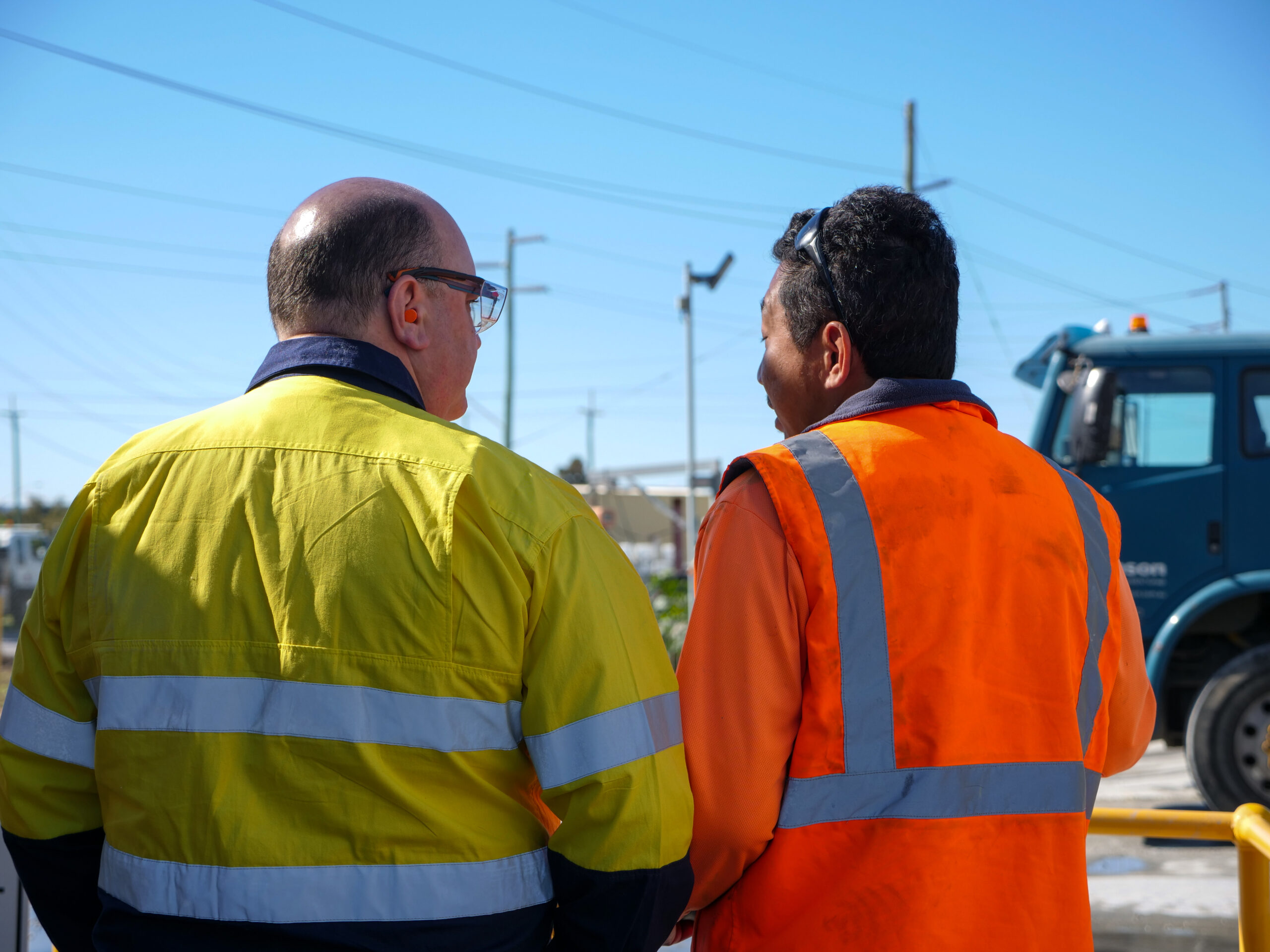In the realm of workplace health and safety, the term PCBU often raises questions and confusion following the introduction of the Western Australian Work Health and Safety Act 2020.
This blog aims to provide clarity by explaining who PCBUs are, their responsibilities, and how to comply with recent changes in Australian Workplace Health and Safety Legislation. Whether you’re an individual, business owner, or part of a larger organisation, this guide offers essential insights into navigating these regulations, including psychosocial risks and consultation requirements.
Australian Workplace Health and Safety Legislation
- Australian State and Commonwealth governments have in place Workplace Health and Safety legislation that provide similar workplace health and safety requirements across all jurisdictions.
- This came about as part of a national reform to harmonise WHS legislation.
- Each state harmonises their WHS legislation in line with the Safe Work Australia’s Model WHS laws.
Free PCBU Checklist
Model WHS Laws
Consists of:
- Model WHS Act – details the WHS legal requirements.
- Model WHS Legislation – details the legal procedural or administrative requirements to support the Act.
- Model Codes of Practice – are practical legal guides to achieve the standards of health and safety required under the Act and Regulations
PCBU and Workers
New terms:
- PCBU (Person Conducting a Business or Undertaking) replaces the old term ‘Employer’.
A ‘person’ can include a company or association, a partnership or an individual. An ‘undertaking’ refers to non-profit enterprises.
PCBU’s therefore can include:
- self-employed individuals,
- partnerships,
- franchisees,
- incorporated or unincorporated companies,
- associations,
- government department of public authority (including municipal councils),
- charitable organisations,
- property owners (who control or manage workplaces),
- designers, manufacturers, importers or suppliers of plant, substances or structures used in work,
- installers, constructors or commissioners of plant or structures used in work.
Worker replaces the old term ‘Employee’. In addition to ‘employees’, the term ‘worker’ also includes volunteers and visitors of a workplace.
Who is not a PCBU?
The WHS Act identify specific persons that are not PCBU’s. These include:
- Volunteer organisations, except if they employ on behalf of the association a worker,
- Individuals engaged solely as a worker (such as an employee) and an officer (such as an Executive Manager) acting in that capacity only,
- Local government members, who are acting in that capacity,
- Strata title companies (body corporate) that are responsible for common areas used only for residential purposes, unless the strata company engages one or more workers as an employee,
- Individuals who carry out domestic work in and around their own home for themselves or organise one-off events, such as dinner parties and garage sales,
- Individuals who engage a worker to carry out ad hoc home maintenance and repairs or other domestic work, such as casual babysitters or tradespersons to undertake repairs.
Free PCBU Checklist
PCBU Primary Duty of Care
Under the WHS Act, the PCBU owes a Primary Duty of Care to workers. This means that the PCBU is responsible for ensuring, so far as reasonably practicable, the health and safety of workers. This is a higher standard than what was required of ‘employers’ under previous OHS legislation. Employers needed to ensure workers were not exposed to hazards, now PCBU must ‘ensure’ the health and safety of workers.
PCBU WHS Duties
• Provision and maintenance of a working environment that is safe and without risks to health.
• Provision and maintenance of plant, structure and systems of work that are safe and do not pose health risks.
• The safe use, handling, storage and transport of plant, structure, and substances.
• Provision of adequate facilities for the welfare of workers at work.
• Provision of information, instruction, training, or supervision to workers needed for them to work without risks to their health and safety and that of others around them.
• The health of workers and the conditions of the workplace are monitored to prevent injury or illness arising out of the conduct of the business or undertaking.
• Must consult with workers (and/or HSRs) about matters that directly affect them.
PCBU – New Requirements
The above PCBU duties are similar to ‘Employer’ duties detailed in previous OHS legislation. However, there are new requirements in the WHS Model legislation that support the PCBUs new Primary Duty of Care requirements.
Managing psychological risks of workers is a new requirement for PCBU’s.
The definition of ‘health’ has been extended to include not only physical health eg hearing capacity and lung function but also mental health. This means that PCBU’s now need to identify reasonably foreseeable psychosocial hazards to workers mental health and to eliminate these hazards. If it is not reasonably practicable to eliminate these hazards, then the PCBU must minimise these hazards so far as reasonably practicable.
In managing psychosocial hazards, the PCBU is required to demonstrate that the control measures put in place to minimise the hazards remain effective and are reviewed when required.
The PCBU is also required to have a risk management process in place that considers:
- the duration, frequency and severity of exposure to hazards.
- how psychosocial hazards may interact or combine.
- the design of work and systems of work.
- the design, layout and environmental conditions of the workplace including providing safe means of entry and exit, and facilities for the welfare of workers.
- plant, substances and structures at the workplace.
- workplace interactions or behaviours, and
- information, training, instruction and supervision provided to worker.
Consulting Workers
Whereas previously it was acceptable for the employer to communicate with employers on health and safety matters, now the PCBU must consult with workers.
This means:
- sharing relevant information with workers.
- giving workers a reasonable opportunity to express their views, raise WHS issues and contribute to the decision-making process.
- taking those views into account before making decisions on WHS matters, and
- advising workers of the outcome of consultations in a timely manner.
Consulting with other PCBUs
There will be times when there will be more than one PCBU working at a workplace. A new requirement is that all the PCBUs must consult with one another to ensure the health and safety of all workers.
Examples where there can be multiple PCBUs at the one location:
At a shopping centre may include the:
- owner of the multi-tenanted shopping centre
- manager of the shopping centre
- individual businesses
- operating from shops in the shopping centre
- people carrying out ancillary activities, such as cleaning, security, shopping trolley collection
At a construction site may include the:
- principal contractor on the construction site
- sub-contractors engaged by the principal contractor
- sub-contractors engaged by sub-contractors, including self-employed contractors
- client engaging the principal contractor
At a service station may include the:
- service station owner
- service station operator, if different from the owner
- mechanic, if running a separate business
- PCBU carrying out the supply of gas cylinders to the public at the service station
- operator of an attached fast food outlet
Free PCBU Checklist
Reasonably Practicable
The model WHS laws recognise there are times when eliminating a risk or controlling risks in a particular way just isn’t possible. To reflect this many of the duties in the model WHS laws require you to do what is reasonably practicable.
Reasonably practicable means what is reasonably able to be done taking into account all the relevant matters including:
- the likelihood and possible consequences from the hazard (risk)
- what you should know about the hazard, risk and ways of controlling the risk, and
- the controls available
Cost is also relevant but only after you have considered other relevant factors.
If a control isn’t reasonably practicable, you need to find other ways to control the risk.
Offences and Penalties
The WA WHS Act provides for the following categories of offences for breach of health and safety duties. The maximum penalties are different depending on the category of the offence and whether the offender is an individual or a body corporate (company).
• Industrial Manslaughter (Crime) applies to PCBUs and Officers where the prosecution can establish beyond reasonable doubt that the person knew that their conduct was likely to cause the death of, or serious harm to, an individual and they acted in disregard of that likelihood.
• Category 1
Applies to those with a WHS duty (PCBU, Officer, Worker) where their conduct in failing to comply with that duty caused the death of, or serious harm to, a person.
• Category 2
Applies to those with a WHS duty (PCBU, Officer, Worker) where their conduct in failing to comply with that duty exposed a person to the risk of death, injury or harm to health.
• Category 3
Applies to those with a WHS duty (PCBU, Officer, Worker) who failed to comply with that duty.
Offence | Company | Individual (PCBU/Officer) | Individual (Worker) |
Industrial Manslaughter | $10 million | $5 million, 20 years jail | Not Applicable |
Category 1 | $3.5 million | $.68 million, 5 years jail | $.340 million, 5 years jail |
Category 2 | $1.8 million | $.35 million | $.17 million |
Category 3 | $.57 million | $.12 million | $.055 million |


